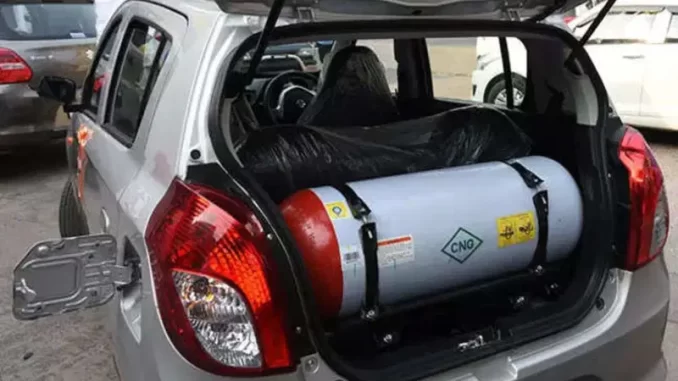
With the rising prices of petrol, Nigerians are now forced to consider alternative fuels like CNG as a cost-effective solution to power their cars.
CNG-powered cars offer a viable option for those looking to save on fuel.
Despite being greener and leaving fewer emissions than petrol or diesel cars, CNG vehicles have faced skepticism.
This article takes a look at some common misconceptions:
Myth 1: CNG cars are unsafe
Contrary to popular belief, CNG is safer due to its higher ignition temperature compared to petrol. CNG operates at 700°C, while petrol ignites at 455°C, reducing the risk of fire. CNG cylinders are also rigorously tested for safety, making them tougher than traditional petrol tanks.
Read also:
5 things to know before converting your petrol vehicle to CNG
Myth 2: CNG cars are unreliable
CNG cars are just as durable as petrol cars, if not more so. CNG is lighter and non-corrosive, helping engines last longer and lowering repair costs. CNG vehicles also require less frequent oil changes, making them a convenient choice for busy individuals.
Myth 3: CNG is expensive
While CNG cars may cost more upfront, CNG itself is cheaper than petrol, making long-term savings substantial.
Myth: CNG is as harmful to the environment as other fossil fuels
One of the key benefits of CNG is its reduced environmental impact. CNG emits 25-30% less carbon dioxide (CO2) than gasoline and diesel, making it a more climate-friendly option that helps reduce greenhouse gas emissions. CNG produces significantly lower levels of nitrogen oxides (NOx) and particulate matter (PM), pollutants that contribute to smog, acid rain, and respiratory issues. By emitting fewer harmful substances, CNG improves air quality and supports better public health.
Myth 5: CNG can’t be used for long-distance travel
Although CNG vehicles typically have a shorter range than gasoline cars due to CNG’s lower energy density, this doesn’t make them impractical for long trips. Many CNG vehicles come with larger tanks or dual-fuel systems (CNG and gasoline), allowing for extended range. Additionally, with the expanding network of CNG stations, long-distance travel with CNG vehicles is becoming more convenient and feasible.
Leave a Reply